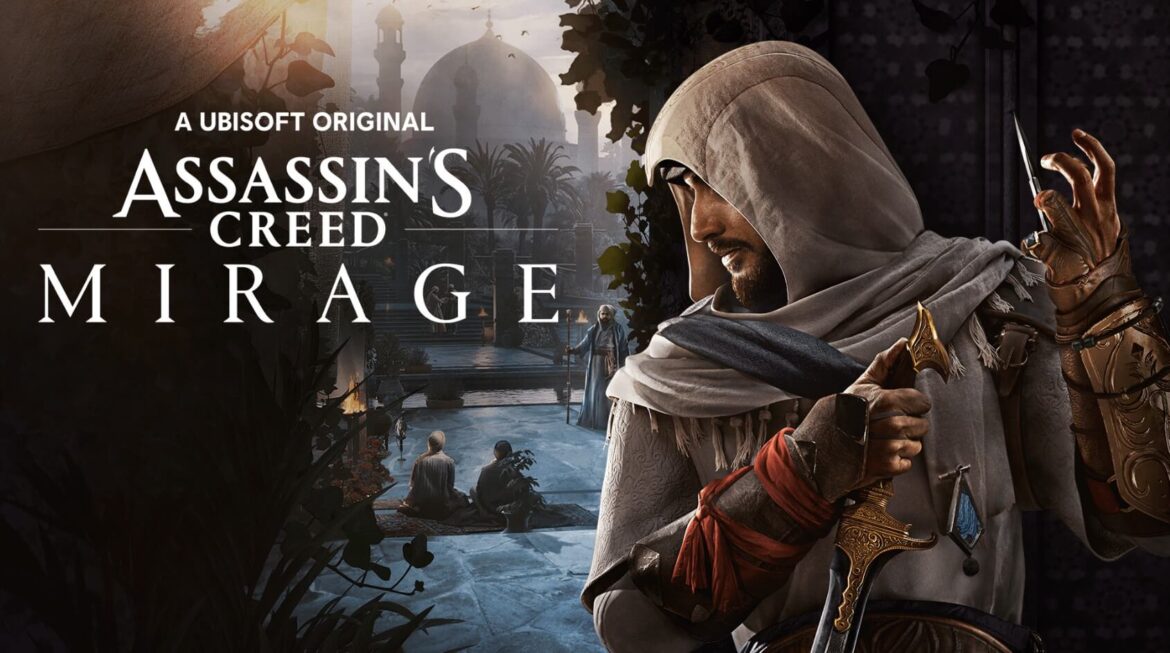Release Date : October 5, 2023
Developer(s) : Ubisoft Bordeaux
Publisher(s) : Ubisoft
Platforms : PS4, PS5, Xbox One, Xbox Series X/S, PC
Last year, Assassin’s Creed celebrated its fifteenth anniversary. Fifteen years of assassinations, reckless jumps into piles of hay, historical periods and countries visited, battles between Assassins and Templars, and story twists. So many years have passed since the license was first produced, re-adapted in every possible way, until it has finally changed its videogame skin from action-adventure to open-world action-RPG.
This change of direction, which was generally appreciated, came at a time when the franchise was being squeezed like a lemon. At a time when the public had barely caught its breath, despite an Assassin’s Creed Valhalla symptomatic of a redundant flavor, we were surprised to learn a few months ago that there were already 10 new Assassin’s Creed games in development.
Thanks to the existence of Assassin’s Creed Mirage, created with the aim of pleasing the fans of the first hour by taking up the DNA that has made the series so strong, a glimmer of light has lit up in the heart of this huge project. No more stats and percentages, huge maps, and hard-boiled builds, we’re back to infiltration and parkour in a tighter playground. Only Basim provides the link between the last opus and Mirage, as we travel with him through the adventures that shaped the tough man he is in Valhalla. With him and the dream scenario of reliving the sensations of Altaïr, Ezio, the Kenways, and Arno, does this new title live up to the expectations?
Demons of One Thousand and One Nights
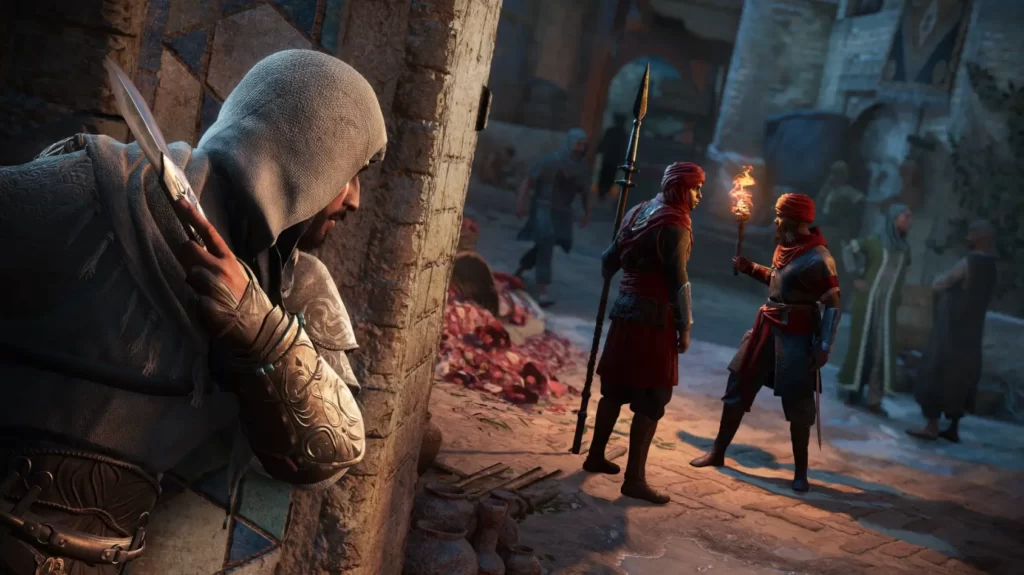
Assassin’s Creed has entered the hearts of many gamers, and everyone has their own hierarchy of the different opuses, but the treatment and character or appearance of the main hero plays a major role. While the iconic Assassins mentioned in the introduction easily found their fans, it was perhaps more difficult to do the same with Kassandra/Alexios or Eivor. Not really as heroes, but rather as pure Assassins raised in the open air, going through the initiation ceremony and its famous severed ring finger. Discovering the past of Basim, whose aura is as strong as the greatest of them, was undoubtedly a good foundation for a compelling plot.
The story of Assassin’s Creed Mirage begins in the village of Anbar, with a young, headstrong Basim driven by a desire for greatness. A thief used to the “400 knocks” with his friend Nehal. the young man takes an interest in the Hidden Ones, the beginnings of the Assassin’s Brotherhood, and wishes to act under their banner. A group that stands in opposition to another obscure organization: the Order of the Ancients. On a night when he wants to attract the attention of the Hidden Ones, his plan goes wrong, and his destiny is changed forever when he is given the opportunity to be taken under the wing of Roshan, Master Assassin. The young man agrees to take the leap of faith.
For two months in Alamut, the headquarters of The Hidden Ones, Basim learns to move, strike and think like an Assassin, while a frightening djinn occasionally torments him in his dreams. A demon to be confronted alongside other demons: the members of the Order. For now, as an initiate of the Hidden Ones, his mission is to confront the members of the Order, one of whose leaders is based in Baghdad. The Assassin will be able to count on his fellow Assassins, Fulahd, Rebekah, and even his mentor Roshan, whose advice, experience, and wisdom will help him evolve in the shadows, throughout an adventure that will keep us immersed in the feeling of acting in secret and as part of a group.
The first few hours of gameplay, serving as a prologue, reflect this desire to set the scene quietly, and Alamut is one of the nods paid to long-time fans. It’s nothing less than an Assassin’s lair, where you can chat back and forth, and try your hand at parkour moves and combat. From the start, the game emphasizes the brotherhood atmosphere, which has been lost for far too long, despite the short-lived Hidden Ones DLC from Assassin’s Creed Origins.
Agent XLVII
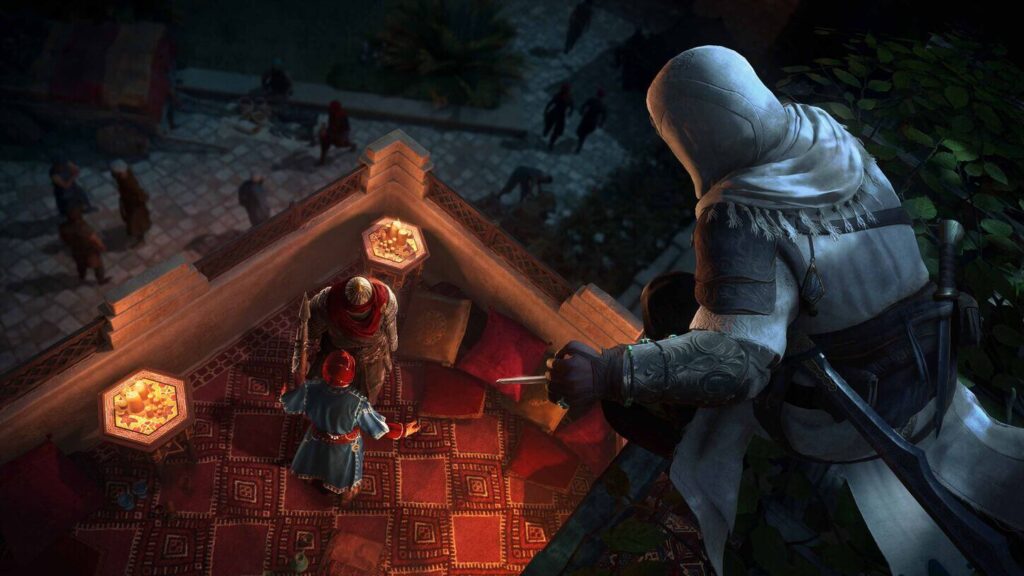
Despite the lengthy introduction, you’re all set to head for Baghdad, the scene of operations. The structure of the progression is quite clear, right from the start: Baghdad is made up of four districts, and each district has its own member of the Order, as well as an Office of the Hidden Ones, from which the main quests start. The missions then unfold in a system of investigations.
You start with rumors about the target, then verify these rumors by searching a location, talking to NPCs, or reaching a contact known to the Bureau. Step by step, the leads develop, the missions become more complex and the identity of the member of the Order takes shape. And when that person is identified, the assassination of this major target begins. Often well-surrounded or isolated, the first step is to find out how to reach him.
There are various ways of doing this. With the help of Enkidu, our eagle-drone, and by spying on conversations, bribing the right people with special tokens, chatting with NPCs, or lending them a hand, we learn, for example, the existence of secret access points, as well as the conditions for reaching the target. Some major assassinations will require you to disguise yourself, find passwords, or win an auction to facilitate your approach to your prey. And the nice surprise is that sometimes an opportunity isn’t highlighted, requiring you to poke around or really listen to what you’re told to locate it.
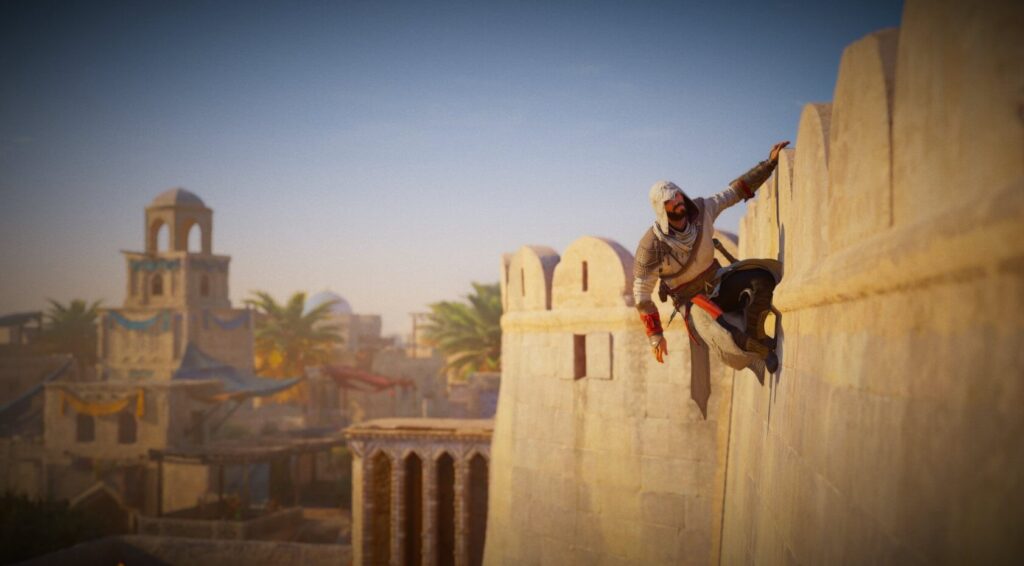
Although these opportunities are quite free on paper, and sometimes available outside of major assassinations, they don’t transform the game either. Let’s take the auction as an example. If we win it, we get the item enabling us to get an interview with the target; if we lose it, all we have to do is climb two walls and steal it from the winner. So it’s almost better to lose the auction on purpose in order to keep your money.
The same applies to the “investigation” principle. During a lead, a judge asks for tokens in exchange for information. If you have them, you can access the information directly; if not, you simply have to infiltrate an office a few rooms away to retrieve a document for the judge and move on.
The investigation board itself is no more than a classic quest diary in disguise, where you simply carry out one mission after another, rather than offering a real investigation with a linkage of elements given over to the players. Despite this, the table does have the merit of drawing up a clear summary and diagram of the connections between each lead and character linked to a branch of the Order.
In short, the opportunities and the investigation system are nice, giving us the impression of being a seasoned detective coupled with a resourceful killer, but ultimately remain quite redundant, unlike the real gameplay sensations.
Assassin’s Creed 100% Pure Juice…
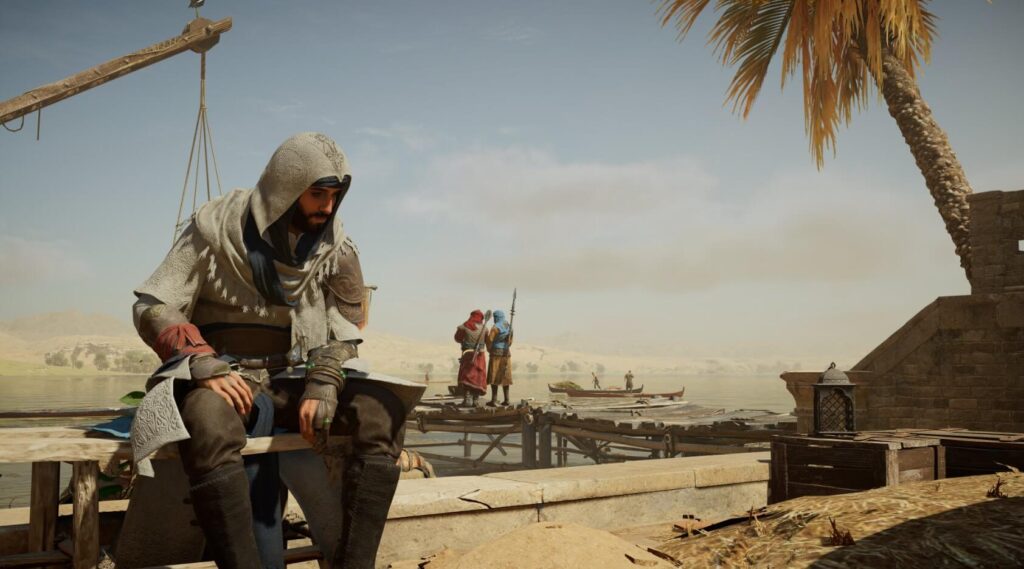
That’s why Assassin’s Creed Mirage, as Narrative Director Sarah Beaulieu has made clear since its official launch, returns and honors the beginnings of the series, the stuff that built the legend. And, with the controller in hand, this is achieved through two major axes: infiltration and assassination. We’ve just touched on assassinations in broad terms, and if the form lacks depth, the very principle of locating a major target, approaching it progressively, and delivering a fatal blow after having fooled it provides excitement and build-up that does the spirit of the license a world of good.
And beyond the main targets, it’s the one-shot assassination system that’s a breath of fresh air, which was more frustrating, in the action-RPG vein initiated by Origins, to sneak up behind an enemy and “petty-assassinate” him, taking only a portion of his life? Here, the secret blade is fully restored to its rightful place as the ultimate weapon for the character you play.
Infiltrating a warehouse, a port, a mansion, or an entire dome becomes a playground where you act as a predator. The numerous hiding places also offer the opportunity to discreetly eliminate soldiers without leaving a trace. Assassination from haystacks, benches, bushes, and hanging gardens is back with a vengeance, with the ever-popular whistle to lure guards toward you.
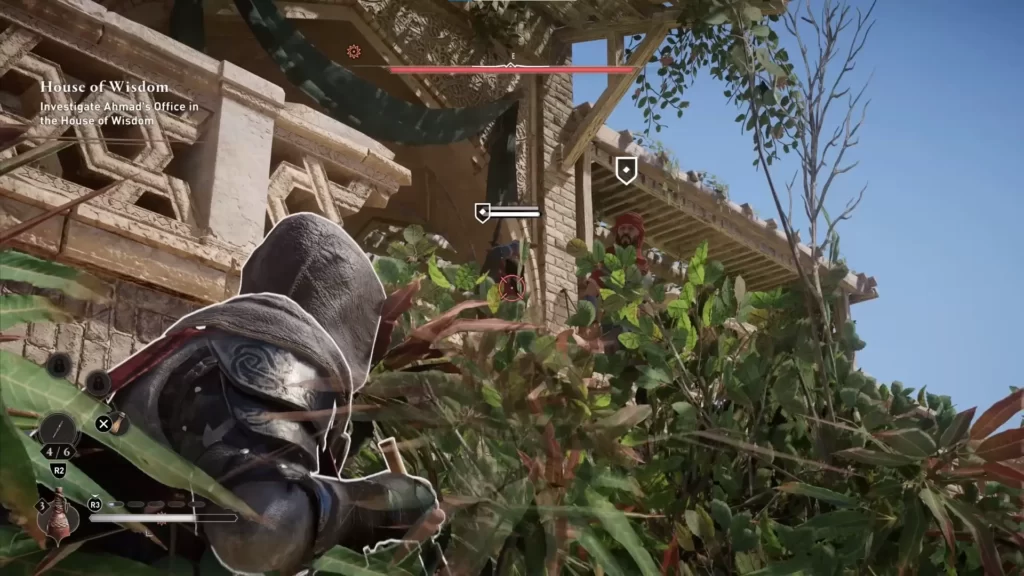
And if hand-to-hand combat isn’t an option, throwing knives are the perfect complement to the secret blade. One assassination after another is exhilarating, and inevitably brings back memories of Altaïr or Ezio’s adventures. In addition to knives, other tools such as smoke bombs, blowpipes, and bird calls can be unlocked from the Banu Musa brothers in the various offices. Upgradable on different levels, they allow us to add new strings to our bow, distracting, sedating, or turning soldiers against each other.
With the help of Enkidu and our eagle vision, it’s easier to see where to go, or which guards to kill first. However, watch out for the ” marksmen “. These guards hunt Enkidu and must be killed if you want to use your eagle again. As you can see, this return to fatal assassinations is a success, providing the player with the desired effect, which is the pleasure of taking part in fast-paced infiltrations.
Concentration is the only divisive element. This mechanic allows you to instantly assassinate between two and five enemies, depending on your progress. If you have enough energy, you can target any enemy within range, and Basim will teleport to each of them to deliver a fatal blow. Yes, it’s clearly very powerful, and on top of that, you can even take advantage of this feature to reach guards in the blink of an eye at points you couldn’t even reach by climbing.
… With Its Lumps
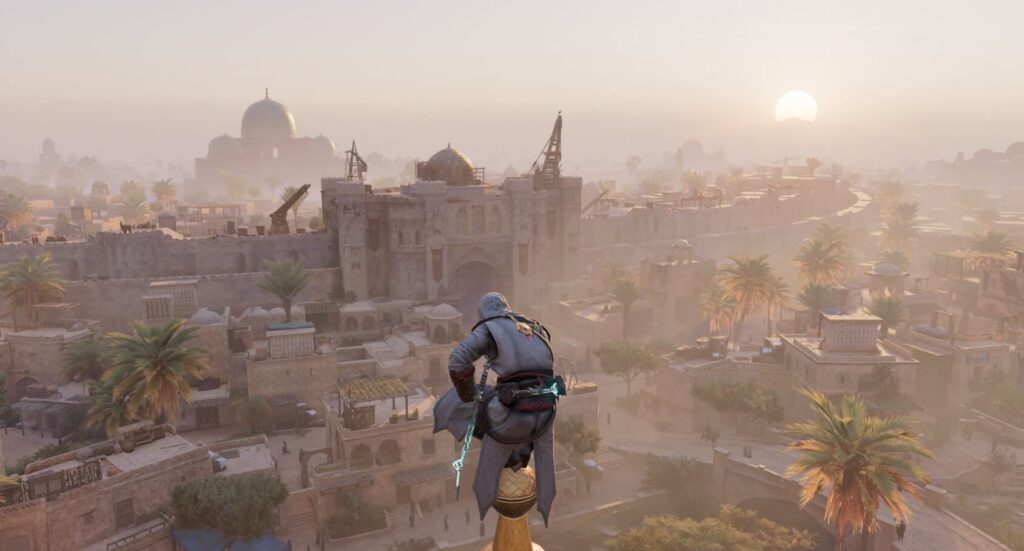
Parkour is one of the other key ingredients in the Assassin’s Creed series. This way of moving has always been a symbol of freedom for Assassins and players alike, as well as being a threat from all sides. Well-developed, this mechanic allows for a certain fluidity of movement. This was the wish expressed by Marco Maresca, Senior Game Designer, but we have to admit that the result is rather mixed.
Yes, you can easily navigate the entire city of Baghdad, thanks to a level-design that encourages this kind of movement. It’s also possible thanks to the numerous ways in which you can move forward, between familiar moves such as corner swings or ascending via freight elevators, and new ones such as pole jumps. But no, the experience isn’t entirely fluid. The L2 + X combo for advancing, jumping, and climbing (or L2 + O when descending) causes quite a few inaccuracies.
Sometimes Basim doesn’t grab the right ledge, doesn’t get down on the right railing, or takes a painful fall rather than grabbing onto something that was supposed to be at a distance. Our hero even displays a certain inflexibility coupled with collision issues, with situations where it seems as if he’s struggling to connect his moves or just to get off a beam or balcony. Precious time is wasted, sometimes resulting in a nearby guard being alerted. Even worse, on rare occasions, Basim simply can’t get off a plank he’s crouched on, or can’t pull himself up onto a balcony, hanging onto anything but the desired surface. A highly damaging point that regularly breaks the rhythm and takes us out of a potentially enjoyable flow.
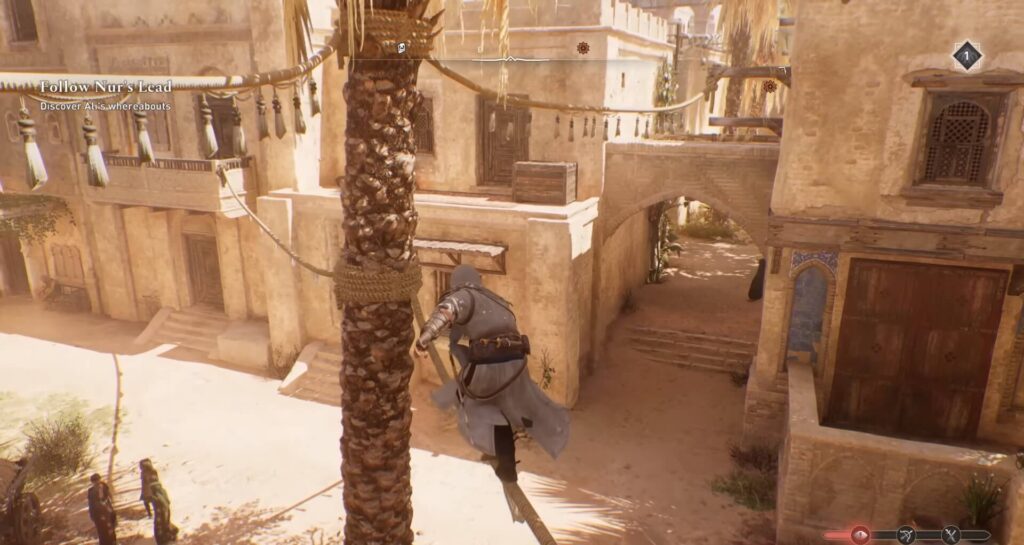
These inaccuracies are compounded by bugs. Also historically and intimately linked to the series, we could have done without them in Assassin’s Creed Mirage, surviving patch 1.002.000 which at least fixed a handful of them. As always, their appearance and frequency will vary from one player to another. During our playthrough, we had bodies that occasionally ragdoll to the point of moving a meter after assassination. It was sometimes impossible to talk to a merchant, unless you reloaded the zone or… hit him.
There were also a number of popping and other texture problems, notably with Enkidu when he was being flown out of town. And let’s not forget the flaming jars which, when intended to be thrown down on a group of enemies, ended up exploding in our own hands nine times out of ten, due to a more than mysterious aiming curve. And among the really rare bugs, we found that even when facing an enemy slightly below us, the latter couldn’t see us, and that loading an auto-save could cause us to appear in the middle of combat.
To conclude on the most negative points, the combat system will not go down in history. Traditionally, battles in Assassin’s Creed were either too simple, with a lot of fluidity but soldiers queuing up, or more demanding or technical, with a wider range of moves, just like in Odyssey and depending on the difficulty chosen. In Assassin’s Creed Mirage, we have neither.
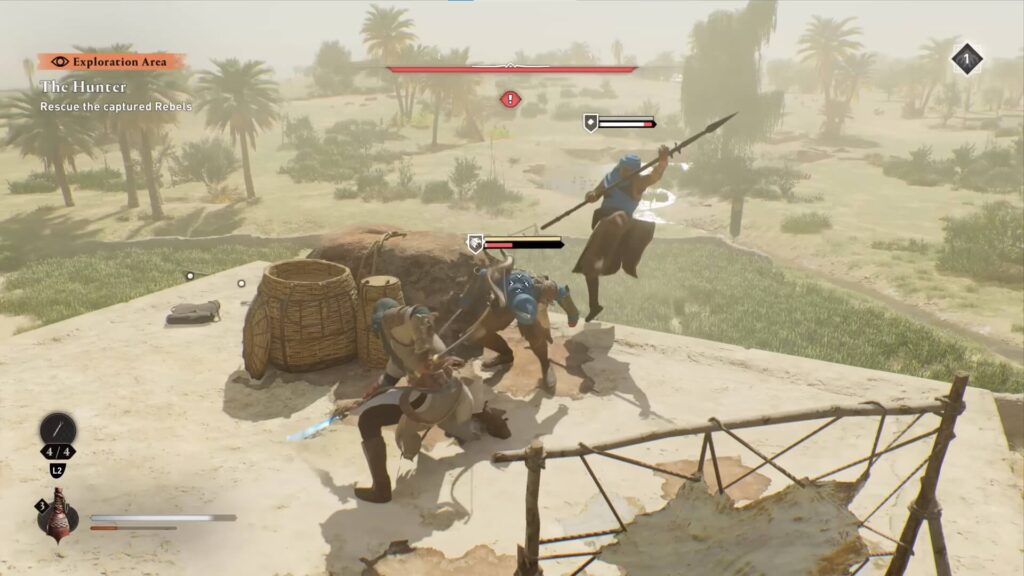
Of course, we were made to understand that the focus was on infiltration, and that it was preferable to avoid combat. But we didn’t think we should take this almost literally. Faced with more than two or three guards, the confrontation proves really tough, and you can die in just a few moves. We do benefit from warning lights to indicate whether we should dodge or parry, but the feeling isn’t really satisfying, and the lock-on system cripples us more than it helps us. Moreover, we’re subject to a poorly implemented stamina gauge. So, at best, we’re left with a battle rhythm that’s both structured and chaotic.
Clean but Not Empty
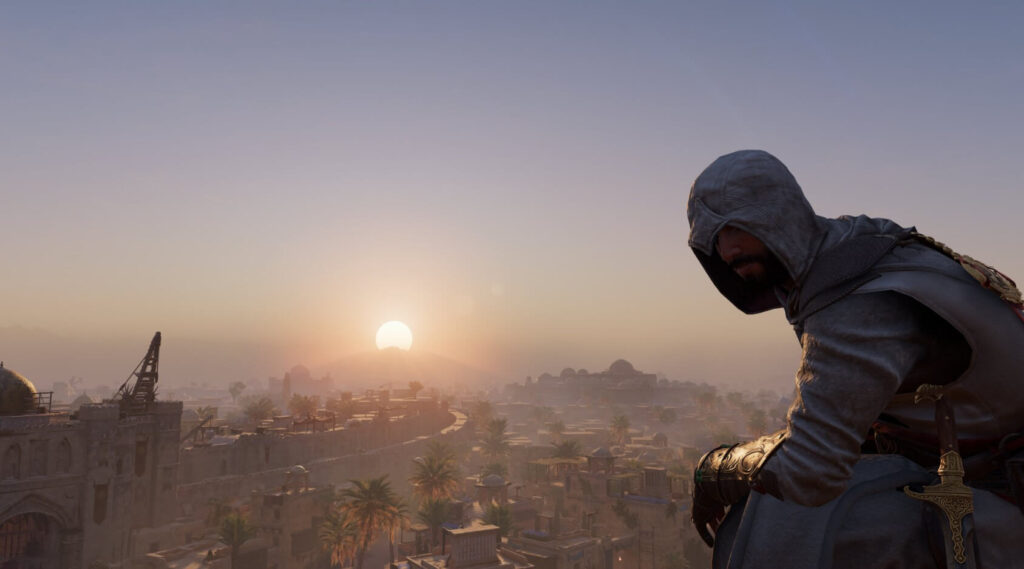
Although Assassin’s Creed Mirage aims to be more accessible than its last predecessors, thanks to a more modestly-sized map, it also revises its classic upgrade mechanics and side missions. In the absence of the loot cascade and rarity system adopted by the last three opuses, Basim can still count on some equipment. Outfits offer bonuses such as stealth or health regeneration, while swords and daggers have offensive and defensive stats. Everything can be upgraded at the Tailor or the Blacksmith in exchange for the necessary resources and improvement plans.
These can be found in chests, most of which require a bit of observation beforehand. Often, these treasures lie in houses with barricaded access. In such cases, you’ll need to walk around the building and find a space where you can throw a knife at the bolt blocking access to a window or door. It’s a nice idea, although it can take a while to find the solution. The same can be said for the puzzles. Sometimes explicit, with a slightly vague written description of the treasure’s location, sometimes obscure, taking the form of more or less clear drawings, these scrolls keep our minds busy.
There are also contracts requiring you to assassinate a target, escort an NPC, or steal an object. Available in the Offices, completing these missions earns you materials, equipment, tokens, and skill points. Yes, even though it abandons the experience system of its predecessors, Assassin’s Creed Mirage can’t do without the skill tree. Divided into three categories, it allows Basim to boost his infiltration, combat, and assassination skills, as well as Enkidu’s abilities.
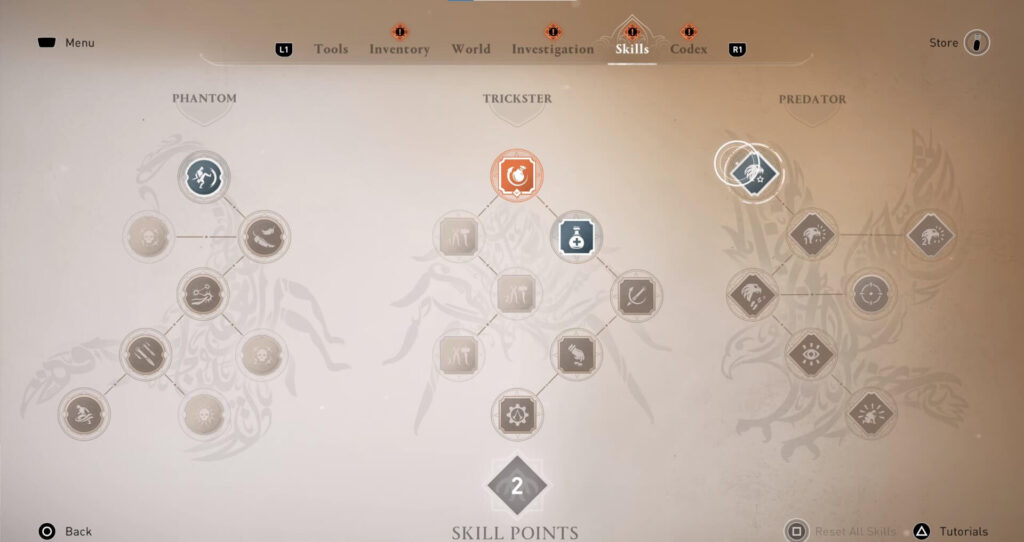
As for more narrative activities, we’ll simply note the “Tales from Baghdad”, which leads us to cross paths with characters in need. We’ll leave you to discover some of them, which may sound familiar. Finally, the traditional collectibles are also present, offering rewards of all kinds, with a special mention for the mysterious shards that open the door to some of the game’s secrets.
To sum up, the game’s lifespan is stretched by classic open-world gameplay: efficient but without an ounce of innovation or madness. At least, with a reduced map, you won’t be overwhelmed by points of interest, but the desire to reach 100% will certainly lead to a certain feeling of repetition. This is quite a contrast to the magnificent city of Baghdad, where you’ll be performing these tasks, and whose beauty will never bore you.
The Golden Age of Baghdad
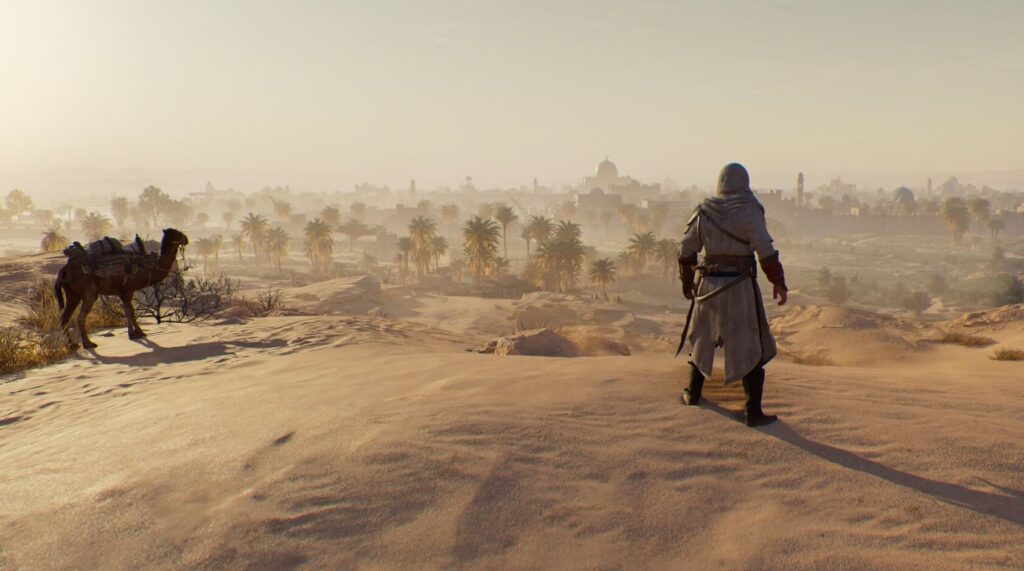
In addition to the stealthy, lethal gameplay and sense of freedom, the pleasure of playing Assassin’s Creed comes from its historical context. Over the past fifteen years, we’ve discovered a variety of eras, cultures, and architectures, and Mirage is no exception with its 9th-century Baghdad. As we explore its four quarters, we enjoy looking around us and raising our heads to observe the greatness of its buildings. Each district has its own special features. And how could we fail to mention the lively and diverse Karkh bazaar, the observatory and House of Wisdom in the Abbasiyah cultural district, or the majestic Green Dome Palace in the Round City?
Sometimes it’s enough simply to find yourself at a corner of a garden, next to a stream, or at the top of a rooftop to enjoy an ideal view, thanks to the successful overall play of light and a day/night cycle that also offers a variety of perspectives. Horse-riding in the Wilderness also adds a relaxing touch, making the ride in Assassin’s Creed Mirage as enjoyable as ever. Fans may appreciate the visual desert filter reminiscent of the first Assassin’s Creed, but above all, Photo Mode enthusiasts are in for another treat.
And the music is certainly not going to pull us out of our immersion in this era and this region. Obviously composed of delightful oriental sounds, it is pleasant to the ear, with a main theme that sticks in the head. There’s a different theme for each menu tab, which you’ll pass through regularly, and they’re all very well done. The audio is further enhanced by full dubbing in Arabic, adding to its authenticity.
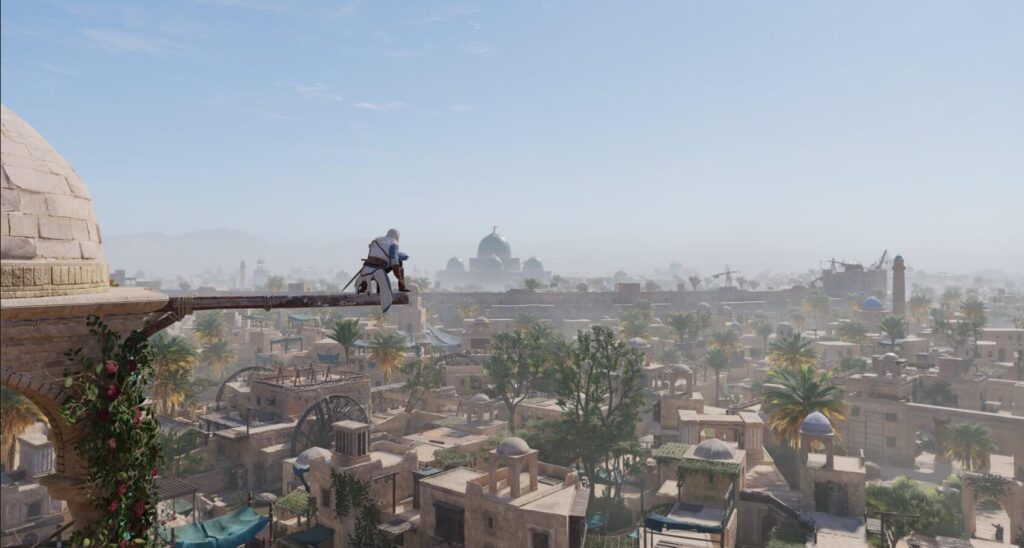
Of course, the historical dimension of Ubisoft Bordeaux’s title should not be overlooked: like its predecessors, it aims to educate us with its wealth of information on life in Baghdad. Whether we’re talking about art, science, religion, daily life or political and legal aspects, we’ll find ourselves enriched by the collection of codex fragments that provide us with precious bits of history. But Baghdad is also a vibrant place, with its crowds that can be robbed via an addictive timing mini-game. The same crowd that witnesses a robbery or murder raises a notoriety gauge. The higher it rises, the more Basim attracts the attention of the crowd and guards, until a Shakiriyya, a fearsome elite warrior sent to kill us, arrives. It’s also interesting to note that running into guards in the street has surprisingly no consequences, whereas standing near them triggers an alert.
Fortunately, in Baghdad you can find ways to bring down this notoriety, also well known from Assassin’s Creed with Ezio: tear down Basim’s wanted posters and bribe speakers, the Munadi. Over twenty-five hours of play, and with the maximum amount of care, this gauge is regularly lowered. This can lead to a few potentially redundant detours, but not so many as in the first opuses.
Conclusion
Assassin’s Creed Mirage lives up to its name and fulfills its mission. The desire to recapture the sensations of the license’s past is fulfilled, without going any further than this initial idea. We happily find a more digestible recipe, consistent with the spirit of the saga, in the superb city of Baghdad. Ingredients such as assassination, infiltration, target tracking, and historical immersion are once again savored, without escaping the series’ traditional shortcomings, as well as the parkour and combat systems. Assassin’s Creed Mirage certainly offers pleasure, but with a particular taste when you consider that the many huge projects surrounding the license are on the horizon, and that this adventure with Basim probably doesn’t reflect their content.
